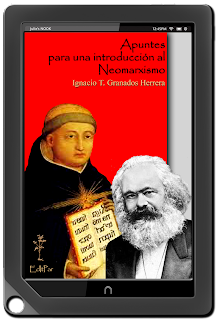Hegelian Inconsistencies, related to God II
This is Hegel's problem, as the culmination of the last cycle of rationalism, which would have started with Kant; in what will be Irrationalism, but not as a negation of Reason, but its understanding as Transcendental; in an intuition about the distinction of the real, which still subordinates the immanent to its transcendence. The conflict is not small but serious, and existential in a way, just that exclusively for philosophers; which since the problem of universals has gone out of the way politically, as only the Patristics before it[2].
Transcendentalism
thus aims at the comprehension of the real as inmano-transcendent, in the
Hegelian absolute; with an instrument as efficient as Logic, as Practical
Reason —supra-rational— in its transcendence. However, this cannot be comprehended,
in the subjection to the necessity of an absolute transcendence of God; which
cannot be questioned, on pain of dismantling the hermeneutical spectrum of
Christianity, which grants the political order.
This would be what produces the complexity of Transcendentalism, trying to explain the real in terms of absolute; ending in that self-referential quality of logic, with the loop of dialectics, because the relativity of the real. It is also the dynamic that produces the first distortion —since the Council of Nicaea— of culture, by Christianity; imposing its determinations from politics and not the other way, as that same transcendent immano problem of the real[5].
[1]
. From the point of view of English naturalism, the problem of Nature is not
the nature of things, but the real in its own manifestation.
[2]
. In fact, the Patristics would produce the Arian conflict, to be resolved only
by imperial authority.
[3]
. This is the attempt —even as a principle— of determinate culture from
politics, as at the beginning with Plato; distorting the functional structure
of culture as reality, with the artificiality of the dialectic conflicts in nature.
[4]
. This refers to the “I think, therefore I am” as the ontological scope of
Cartesianism.
[5]
. It is worth noting here that the transcendent immano value is transcendental,
insofar as it affects the immanent by its transcendence; so the intuition of
transcendentalism is efficient as a principle, only insufficient, and in this —
paradoxically — excessive. This conclusion would prove here the hermeneutical
nature of the problem, as with the ancient cosmologies; in their function of
understanding of reality, even equally regulated by the supra structural function
—not nature— of religion.









Post a Comment